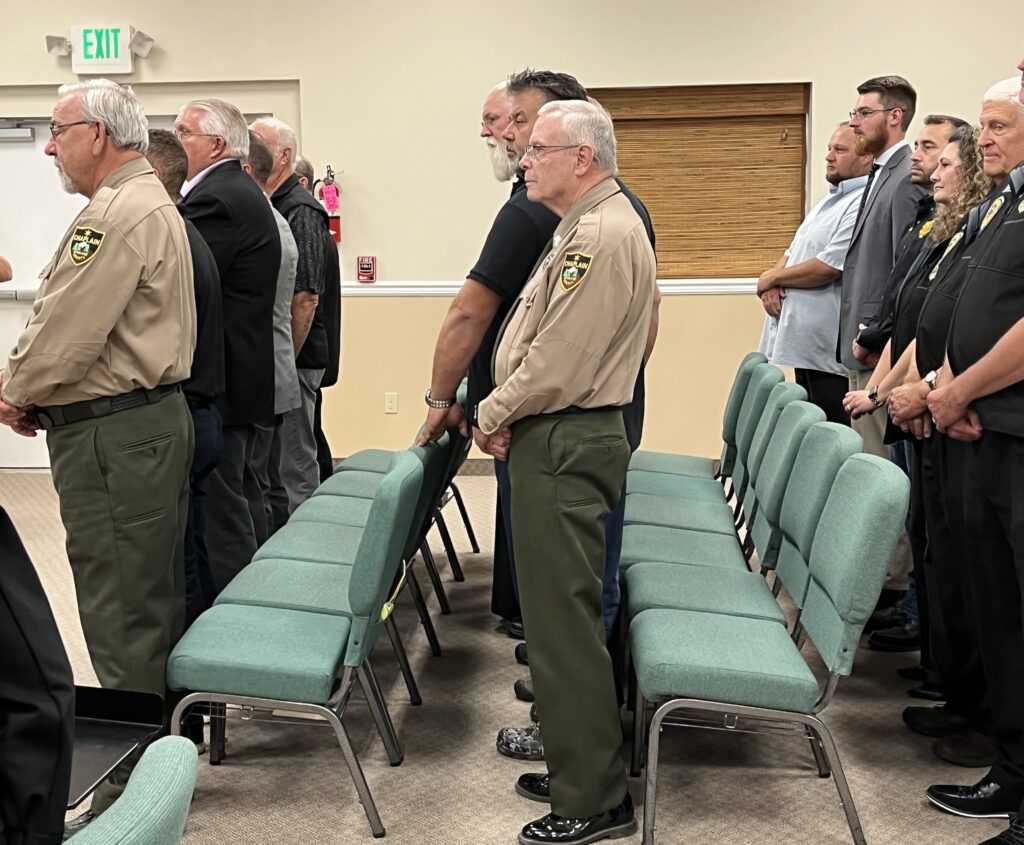curriculum
A rigorous curriculum designed to prepare chaplains for interacting in first responder ministry. Gain the skills you need to be able to gracefully navigate the unique challenges of chaplaincy to first responders and the community.
Overview
 The academy is an intensive program of training using various teaching and experiential methods to help candidates assimilate as much information as possible in one week. The schedule is all day Monday through Thursday with evening field work.
The academy is an intensive program of training using various teaching and experiential methods to help candidates assimilate as much information as possible in one week. The schedule is all day Monday through Thursday with evening field work.
Friday is an optional day at no additional cost. Its content is nonetheless crucial and highly valuable, including some of what makes the FRCA unique in first responder chaplain training.
FRCA reserves the right to change or modify courses offered and the schedule of the courses based on instructor availability and other factors.
The academy schedule is primarily 8-5 Monday through Thursday with devotions starting off the program in the mornings Evening courses will increase the schedule till approximately 8:00pm.
The Friday schedule is similar but optional.
Core Classes
These are the core classes of the First Responder Chaplain Academy. This collection of courses is designed to provide attendees with a robust and well-rounded education on first responder chaplaincy.
Introduction to Police Chaplaincy
Recognize that we don’t know what we don’t know and the fundamental environment of chaplaincy.
Law Enforcement Family
Understanding culture and realities of law enforcement officers and their families.
LODD–Line of Duty Deaths/Agency Incidents
Understanding the scope of LODD, its impact on the agency and families, and functioning effectively in a chaplain role.
Next Of Kin Call-Outs
Critical understanding of the kinds and nature of NOK’s as well as preparation and procedure best practices.
Foundations of Fire
Origins, a badge of honor & spiritual foundation of a fire chaplain.
Personhood of Fire
Focus for the fire chaplain, accountability, and balancing different roles.
Ministry to Fire Personnel
Who is the firefighter? where does the firefighter live & work? What are the firefighter’s needs? How can the chaplain minister to the firefighter?
Fire Operations and Safety
Professionalism, cultural considerations, HIPAA, employee assistance programs, responding to the scene & on-scene safety, unique hazards, and incident command system.
Corrections Officer Basics
Basic understanding of the challenges and environment of corrections officers.
Ride-Along Safety
Protocols, do’s and don’ts, and an important understanding of successful ride-alongs.
Suicide
Understanding basics of suicide prevention, intervention (minimal) and postvention are covered in this course with emphasis on first responders. Intervention will be covered in more detail in the Question, Persuade, and Refer (QPR) course.
Chaplain Assimilation and the Next Generation
Helping chaplains assimilate into their agencies carefully, intentionally, and effectively, combined with understanding the new, younger professionals in the first responder world.
Stress Burnout and Resiliencey
This course provides some best practice tools to assist those in our care in dealing with stress, burnout and being resilient in the first responder environment.
Hospital Chaplain Coordination Basics
Coordinating with hospital chaplains and professional and mutually beneficial ways as their environment is very different than first responders.
Medical Examiner/Coroner Basics
Chaplains will be interfacing with coroners and medical examiner investigators frequently. This course provides a basic understanding of effective coordination techniques for chaplains and these professionals.
Legal Issues–Confidentiality, Ethics and Diversity
Understanding these issues and their relevance to chaplaincy is discussed with important do’s and don’ts.
Police and Fire Dispatch–Basics
Basic understanding of the challenges and environment of dispatchers in the first responder environment.
Substance Abuse
Abuse of substances and other coping methods are all too frequent with first responders. This course gives you a basic understanding of the dynamics and some techniques for support.
The advanced track of courses is optional and takes place on the final day of the academy. These courses are designed to provide additional hands-on knowledge and to further prepare you for the complex situations you may face as a chaplain.
Advanced Classes
Chaplain’s Role in ICS and Best Practices
Taking the knowledge gained from ICS courses, focusing on key do’s, don’ts and must do’s.
Best Practices–Police and Fire Discussion Panel
Hear from police and fire chaplains with decades of experience, share their hard-earned wisdom, and ask questions.
Chaplain Tools and Equipment/Protocols to Know
Critical tools and equipment for chaplains, key equipment, and protocols usually omitted from training but vital nonetheless.
Intro to CISM–Key Must Knows.
An introduction to critical incident stress management and guidance on how and when it is utilized in the field.
Suicide & QPR Training
This course discusses the basics of suicide in the first responder environment. It also trains candidates in the innovative QPR process for assisting in caring for those struggling. The method is designed to help save a live from suicide.
Evening Field Work
These sessions are designed to provide exposure and hands-on learning experiences in the field.
Funeral Home Basics
This course provides a look into a funeral home, cremation and other services that chaplains need to understand dealing with death and the immediate needs of families.
Counseling Do’s and Don’ts
This course provides some basics for simple counseling of first responders, including protocols, safety, and appropriateness.
Crime Lab/Forensics Basics
This course examines the world of forensics and the people, stressors and challenges of this unique and difficult environment so chaplains can support them effectively.